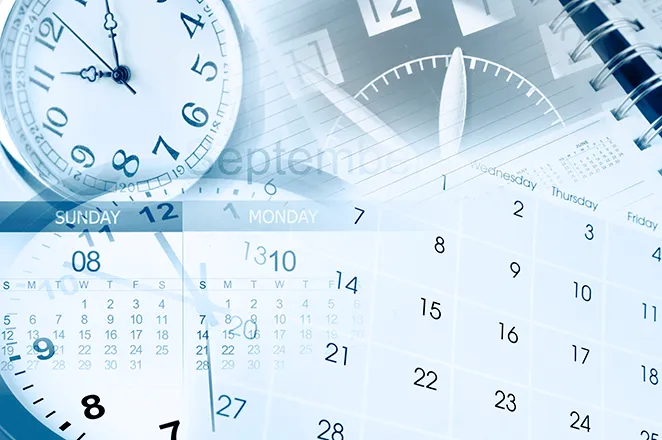
Daily Audio Newscast - July 8, 2025
© AlexLMX - iStock-823000260
Six minutes of news from around the nation.
Kerrville didn't have weather sirens used by other cities; Ohio bill could chill ballot access, spark voter challenges; Medicaid cuts: Disproportionate impact predicted for LGBTQ+ in IL; MN's construction trades hopeful data center incentives pay off; Texas doctors leery of changes to 'clarify' abortion law language.
TRANSCRIPT
The Public News Service Daily Newscast July the 8th, 2025.
I'm Mike Clifford.
We head first to the Lone Star State where Kerr County Judge Rob Kelly said he can't answer why cabs weren't evacuated, but acknowledged we do not have a warning system that from KXAN investigates.
They report Kelly told reporters at a Friday news conference, "We didn't know this flooding was coming.
Rest assured, no one knew this kind of flood was coming.
We have floods all the time." reports cities that use sirens like San Marcos, which has 14 outdoor weather sirens to warn of floods, tornadoes, wildfires, have previously touted the outdoor warning system as a vital tool for emergency preparedness.
Meantime, Ohio lawmakers considering a sweeping elections bill that would touch everything from how citizen-led ballot initiatives are approved to voter identification procedures.
Critics of Ohio Senate Bill 153 say it would make it harder for voters to participate in democracy at every level.
Mia Lewis with Common Cause Ohio says the proposal would reshape how Ohioans vote and how issues get onto the ballot.
It makes the entire process of a citizen-initiated ballot measure so much harder unnecessarily.
It allows more signatures to be thrown out for clerical errors.
You kind of agree to be investigated, like you give up your Fifth Amendment rights.
Supporters of SB 153 say it enhances election security, but Lewis says there's no fraud problem to fix.
Faraz Siddiqui reporting.
Next up, advocacy groups are speaking out about how they believe congressional cuts to Medicaid will disproportionately affect caregiver LGBTQ+ communities in Illinois.
At the nonprofit Caring Across Generations, Jamie Worker says Medicaid can be a lifeline for LGBTQ+ people who are aging or living with disabilities, especially those without traditional family support.
She explains for many, care is provided by chosen family or friends with support from Medicaid, largely making that possible.
LGBTQ+ communities are impacted in a unique way when it comes to self-directed care, being able to choose who your care provider is as an older adult or person with disability.
And many of these programs are heavily supported by Medicaid.
She says as people already face barriers to receiving the care they need, Medicaid cuts would unnecessarily force some into institutional settings like nursing homes where they would never have chosen to receive care.
I'm Judith Ruiz Branch reporting.
And from CNN, President Trump cranked up the pressure Monday on America's trading partners, firing off letters to the heads of several countries, informing them of their new tariff rate.
But at the same time, Trump took some of the edge off by signing an executive action Monday to extend the date for all reciprocal tariffs, with the exception of China, to August the 1st.
Those reciprocal tariffs were expected to go into effect on Wednesday.
This is Public News Service.
Minnesota has 42 data centers operating around the state, with nearly a dozen more in the works.
State lawmakers have approved changes to regulate these centers and incentivize developers to build more of them.
The spring legislative session saw the state pass environmental protections to keep in check the large amounts of electricity water these buildings gobble up each day.
At the same time, sales tax exemptions were extended to convince tech companies choose Minnesota over neighboring states as potential sites.
Tom Dicklit, of the Minnesota State Building and Construction Trades Council, says that's a crucial factor with reduced activity for some public works projects.
As you see some of the things happening in Washington, funds that were putting money into states as they're drying up and slowing down, our folks need to work.
Advocating for tax incentives put the council at odds with other Minnesota unions that don't want to lose revenue for priorities like education.
But Diklage says his labor group often doesn't get specific funding in the state budget and needs to find opportunities to fight for its members.
I'm Mike Moen.
And Texas lawmakers passed the Life of the Mother Act.
It was billed as legislation to clarify when doctors in the state can legally perform an abortion.
Texas adopted one of the most restrictive abortion bans in 2021.
The ban allows the procedure only if the life of the mother is in danger or there is a risk of impairment of her primary bodily function.
Houston-based OB/GYN Dr. Damla Karsan says despite the clarification, medical professionals are still hesitant to provide care in most cases.
It's been frustrating because I feel restricted in my ability to offer them the full scope of options for their care.
I know it's really had a chilling effect on all my colleagues and myself as well.
Carson was involved in two legal challenges to the abortion ban.
I'm Freda Ross reporting.
Finally, we head to Wyoming where the Historic Preservation Office is a state office born from the National Historic Preservation Act of federal law.
After a three month delay, the Trump administration released 2025 funds to state historic preservation offices last week.
But 2026 funding is still in question.
Deputy State Historic Preservation Officer Brian Beatles with the Wyoming office says its funding, which helps protect historical, archaeological and cultural resources, was not included in the federal budget bill ushered over the finish line last week.
There are concerns about the future of funding for historic preservation and what will happen to us in the next several years.
In a recent advocacy alert, the Alliance for Historic Wyoming warns that future cuts to the office would discourage private investment and hamper economic growth.
I'm Kathleen Shannon.
There are nearly 600 Wyoming listings on the National Register for Historic Places.
This is Mike Clifford for Public News Service.
Member and listeners supported.
Find our trust indicators at PublicNewsService.org.

















